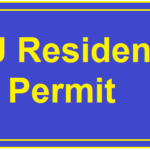EU needs single anti-money laundering authority, says thinktank

The European Union should set up a single anti-money laundering (AML) authority with the power to levy big fines to tackle the stream of scandals across member states, Brussels-based thinktank Bruegal has said in a new report.
The thinktank said that a series of banking scandals in multiple EU countries, including Cyprus, Denmark, Estonia, Latvia, Malta, the Netherlands and the UK, underline the shortcomings of the European Union’s AML regime.
It noted that many of these cases have involved staggering sums, with billions of dollars laundered through accounts at one bank.
The report, entitled A better European Union architecture to fight money laundering and written by Joshua Kirschenbaum and Nicolas Véron, said that the EU legal framework combines a strong, enforceable single market that contrasts with national anti-money laundering supervision of banks and other financial and non-financial firms.
It said this means that the mechanisms to ensure EU-wide supervisory consistency are insufficient.
Integrity undermined
It added: “This combination fosters a vicious circle of erosion of supervisory effectiveness in those member states where money launderers tend to concentrate their activity, which undermines the integrity of the entire European system.”
The report recommended a fresh unitary architecture centred on a new European AML authority, which would work on the basis of deep relationships with national authorities such as financial intelligence units and law enforcement agencies.
It said that the new authority should have high standards of governance and independence, publish all its decisions and be empowered to impose sufficiently large fines to deter malpractice. It also believed that this would act as a catalyst for further EU harmonisation of the anti-money laundering legal regime.
The report noted the increasing awareness in Europe of the link between illicit finance and security threats, not least the risk of interference by Russia and other third countries in EU domestic matters, and of the imperative need for Europeans to have the capacity to address such threats credibly and autonomously if required.
It also noted that the European Central Bank is increasingly dissatisfied with the status quo with ECB Supervisory Board chair Danièle Nouy, saying earlier this year that it was embarrassing that the EU was depending on the US to do its anti-money laundering job for it.
Inconsistent fines
Additionally, it argued that the current fining regime across Europe was incredibly mixed.
“Anti-money laundering fines have so far either been entirely anonymised or not published at all in Denmark, Germany and Spain. In France, Sweden and the UK, by contrast, fines are published and their subjects identified in most or all cases.
“Even in the latter circumstance, the publication format has often made it difficult or impossible to understand the exact nature of the violations, and thus to assess their seriousness, and, as a consequence, the punitive or deterrent impact of a given fine.”
The report suggested that the EU faces a choice of adopting either a supervisor of supervisors’ approach or an agency that would have direct AML supervisory responsibility for firms across Europe, though still working with national agencies and other European-level bodies.
It said that such a body should be set up before any new AML legislation. It suggested that with a year for legislative debate and two years to build the institution and hire the relevant expertise, a new European AML Authority could begin assuming powers in 2022.
Source: INTERNATIONAL ADVISER
Read also: The Money Laundering Process





























